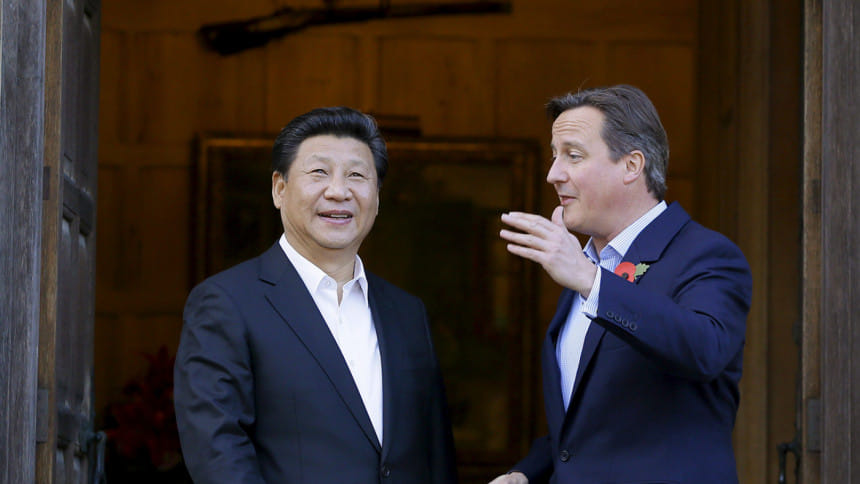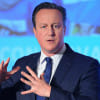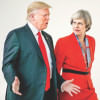David Cameron raises concerns with Xi Jinping over steel

During a Washington dinner on Thursday, Mr Cameron said they needed to work together to tackle "over-capacity".
It comes as China, which has been accused of hurting the UK's industry by "dumping" cheap steel, announced import tariffs of up to 46% on some EU steel.
The government and steel firm Tata said the duties were unwelcome, but would not have much impact on UK exports.
Tata said the particular type of steel affected by the tariff had not been exported "in recent times from our UK operations", but it was concerned about the wider impact on the market.
'No guarantees'
The two leaders met at the White House during the Nuclear Security Summit in Washington.
The prime minister has said every effort is being made to save thousands of jobs after Tata Steel's decision to sell its loss-making UK plants - but he also warned there were "no guarantees of success".
Tata's UK business - which directly employs 15,000 workers and supports thousands of others - includes plants in Port Talbot, Rotherham, Corby and Shotton.
Unions and opposition parties say the government is in "chaos", and want action to save the threatened plants.
The prime minister's spokeswoman said Mr Cameron "raised concerns about the global steel industry" with President Xi, and said the G20 in China in September could be a good forum to address the issue.
Both the government and the unions are blaming cheap Chinese imports for causing problems in the UK.
In 2013, the UK produced 13 million tonnes of steel while China produced 779 million tonnes. Chinese exports have also soared. In 2003, the country exported 7.2 million tonnes rising to 107 million tonnes in 2015.
The country has been accused of dumping - selling steel very cheaply and regularly at a loss, with UK executives warning for months that the flood of steel was placing unsustainable pressure on the industry.
Meanwhile, the Chinese ministry of commerce said imports of grain-oriented flat-rolled electrical steel - a type of high-tech steel made by Tata's Cogent subsidiary in Newport - will be charged duties ranging from 14.5% to 46.3%.
The US has imposed tariffs of 266% on Chinese steel but Britain blocked efforts at EU level to impose similarly high emergency tariffs.
Ministers said they opposed the changes because they could have affected industries other than steel and did impose higher tariffs on some specific Chinese products such as reinforced steel.
'Unwelcome'
A spokesman for UK Steel, the industry's trade association, said exports of this type of steel to China were about 1,000 tonnes per year in 2011, 2012 and 2013. This fell in 2014 to 590 tonnes and again in 2015 to 332 tonnes, it said.
The Department for Business, Skills and Innovation said the duties were "clearly unwelcome", but were "not expected to have much impact".
However, Tata said it was concerned about the disparity between the EU's low tariffs and high tariffs set by other countries, and the knock on effect on other countries looking for alternative markets for their products.

 For all latest news, follow The Daily Star's Google News channel.
For all latest news, follow The Daily Star's Google News channel. 








Comments